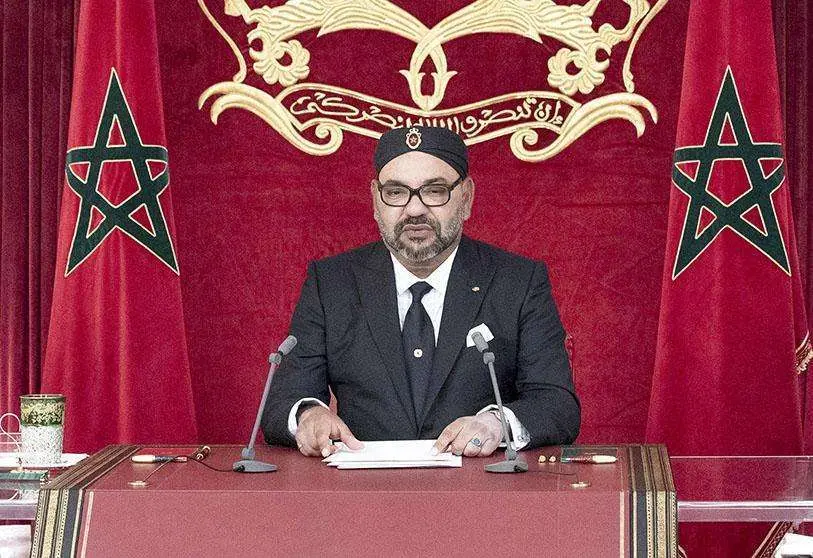After the diplomatic clash, media skirmish between Moncloa and the Moroccan Palace

If, as everything seems to indicate, the article published by the once independent daily El País on Monday 17 May on 'Mohammed VI's thriving business empire' was commissioned by Moncloa, we are on the verge of a worsening of the Spanish-Moroccan political-diplomatic crisis.
The publication, although everything suggests that it has been requested from the unofficial daily spokesman of Pedro Sánchez's government to mitigate the criticism that will rain down on the president in the parliamentary control session on Wednesday 19, will be badly received by the Moroccan royal palace. Because the image it leaves with the reader is that the neighbouring country to the south is under the yoke of a despot dictator who enriches himself through the exploitation of his people, an extrapolation that is at the very least far-fetched and manipulated. The corollary is simple: there will be punitive economic and commercial responses.
In this regard, several considerations should be noted:
The first is that there is nothing in the Moroccan Constitution and the laws of the neighbouring country to prevent the capitalist conglomerate belonging to the Royal Family or in which it is associated with other national or foreign companies, or with independent legal entities, from intervening in Morocco's economic development. It is absolutely legal. Moreover, the companies that fall within the orbit of this capital are the main suppliers of taxes that feed the public coffers. It is true that El País points out in the article that the financial conglomerate or what it calls the royal holding company, Al Mada, owns a foundation of the same name through which the group donated in March 2020 the equivalent of 200 million euros to the special fund dedicated in Morocco to combat COVID-19.
As for the insinuation made at the end of the article that the King skirts the law by opening bank accounts abroad, it is at least incomplete. What El País calls "Mohammed VI's business empire" has, through inheritance from Hassan II or through its own investments, capital associated with foreign companies in France, Spain and the United States, among other countries, which generate profits that can legally be deposited in bank accounts abroad.
The second consideration concerns certain exaggerations in the article, such as the claim that the National Investment Company (SNI), which is the largest investment fund in the Kingdom, may belong exclusively to the Royal Family, which is untrue. The holding company created by Hassan II in 1966, formerly SNI and today El Mada, is made up of a dozen of the main families of Moroccan capital, who also have their own holdings and investments in all sectors of production and services. The SNI was once associated with the ONA (North African Office), erroneously called "the royal holding company" because it included French and Spanish companies and legal entities as shareholders, including the Spanish king emeritus through his front man Simeon of Bulgaria, and Spanish bankers. Certainly, in both SNI and ONA, now renamed Al Mada, the majority shareholder is SIGER, but it is not the only one.
Nor is it very clear from the article that the two main retail hypermarkets in Morocco, Marjane and Acima, the result of joint ventures between Moroccan capital and the French companies Carrefour and Auchan, share the market with others as important as Makro, Awsat, BIm Stores and Label Vie; The telephone operator INWI, belonging to Al Mada, is far from overshadowing the public telephone operator Maroc Telecom and the private Medi Telecom, created through an investment by Telefónica and later bought by Orange and two Moroccan financial groups.
El País says that "the King's fortune increases when someone stays in a hotel of the Atlas chain, present in Morocco's main cities". What it does not say is that the Atlas chain is far behind the large international hotel chains present in Morocco, such as Accor, International, Meridien, Baglioni, Best Western, Oberoi, Holiday Inn, Hyatt, Ibis, and others, in terms of services, number of hotels and affluence. Among the several hundred luxury hotels in Morocco, the Atlas chain has no more than 15 establishments.
It would seem a truism to say, if no other intentions are hidden, that the King's fortune increases when someone buys cement from the Lafarge Holcim company or construction materials from the SONASID steel company, since in the first case the Moroccan holding company Al Mada owns shares in the Franco-Swiss group, and in the second case in the world's leading steel producer Arcelor Mital, based in Luxembourg.
However, digging a little deeper into the composition of the capital of the royal holding company Al Mada, it turns out, as the same article reveals, that in the shareholding of Al Mada, the shares belonging to the King, his brother Prince Mulay Rachid and his three sisters, do not reach the absolute majority, remaining at 46.8%. The "fabulous business" that the King of Morocco's investments in the country bring him is deflated by the results. According to the work done by the delegate of El País, at the next meeting on 25 May, Al Mada will present its shareholders with a historical result of 302 million euros in profits. If we take into account that only the French company Lafarge Holcim has made a profit of 1.5 billion euros in the same period, having lost 25% compared to the previous year, and that the Spanish bank Santander has exceeded 1.6 billion euros in the first quarter of 2021 alone, the actual profit results are quite poor.
What can the opportunity to bring out "the financial empire of Mohammed VI" mean for Spain now? Losses, more crisis and discredit for Pedro Sánchez's government.

